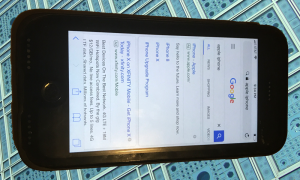
US Supreme Court Rules Against Apple in App Store Antitrust Case
Posted on 05/13/2019
In a 5-to-4 decision, the U.S. Supreme Court ruled against Apple Inc. in the app store antitrust case. The case is Apple Inc. v. Pepper et al.
Justice Kavanaugh joined the liberal wing of the Supreme Court to swing the vote.
Apple sells iPhone applications, or apps, directly to iPhone owners through its App Store—the only place where iPhone owners may lawfully buy apps. iPhone app consumers brought on a case to pursue claims on Apple’s monopolistic practices. iPhone customers can now sue Apple for alleged app store monopolization.
Justice Kavanaugh said in his opinion, “Here, some downstream iPhone consumers have sued Apple on a monopoly theory. And it could be that some upstream app developers will also sue Apple on a monopsony theory. In this instance, the two suits would rely on fundamentally different theories of harm and would not assert dueling claims to a “common fund,” as that term was used in Illinois Brick. The consumers seek damages based on the difference between the price they paid and the competitive price. The app developers would seek lost profits that they could have earned in a competitive retail market. Illinois Brick does not bar either category of suit.
In short, the three Illinois Brick rationales do not persuade us to remake Illinois Brick and to bar direct-purchaser suits against monopolistic retailers who employ commissions rather than markups. The plaintiffs seek to hold retailers to account if the retailers engage in unlawful anticompetitive conduct that harms consumers who purchase from those retailers. That is why we have antitrust law.”
Supreme Court link
